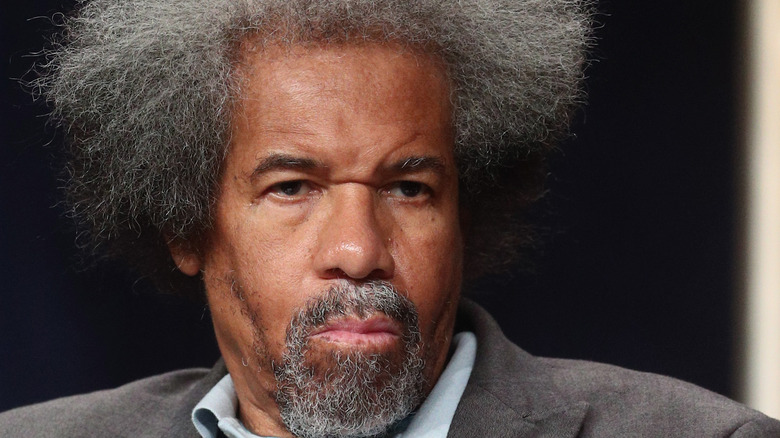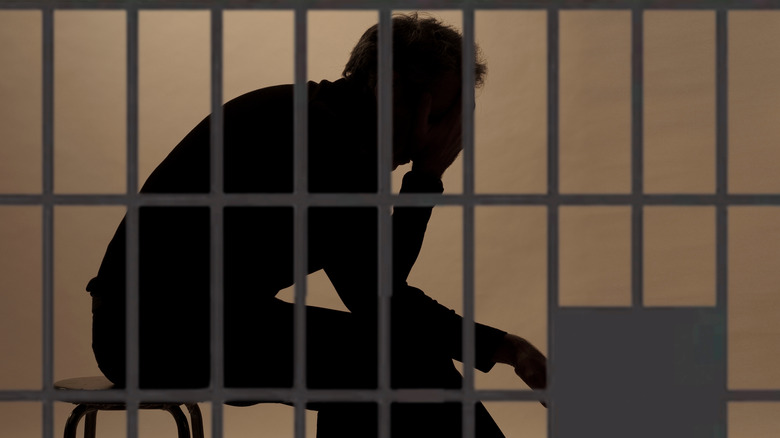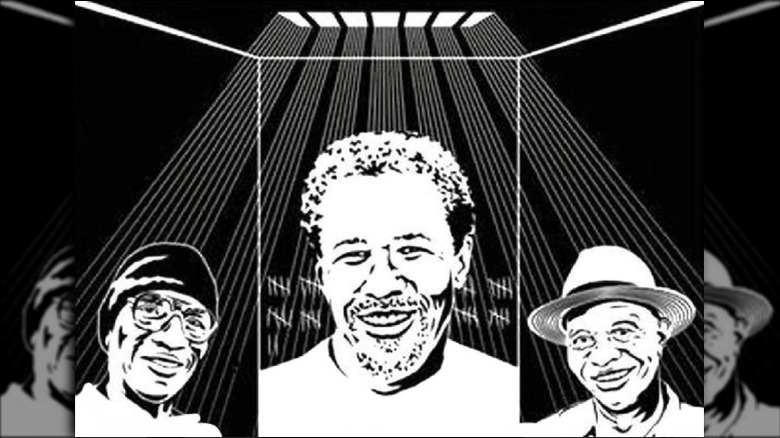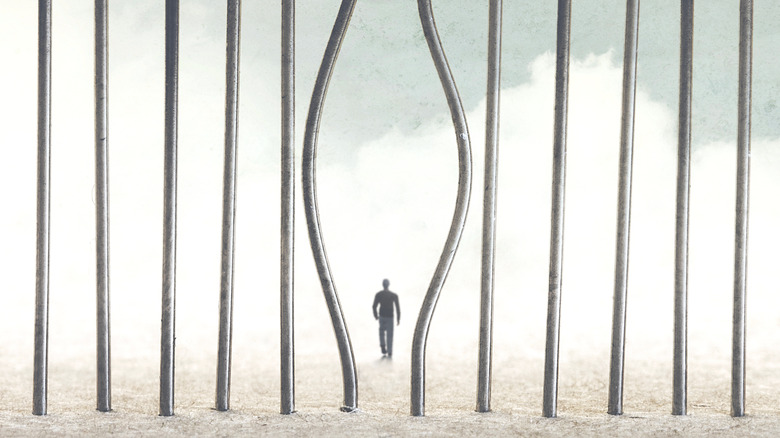The Dark Truth Behind The Man Who Spent 43 Years In Isolation
Solitary confinement is one of the most brutal punishments an inmate in prison can experience. Under this discipline, inmates are often subjected to isolation for days to maintain order. But there has been controversy around this kind of punishment due to its link to mental anguish, and research suggests it may shorten one's life, as reported by Prison Policy Initiative.
Albert Woodfox is a former inmate who was kept in solitary confinement for 43 years — the longest any prisoner has spent in isolation in the United States. What's more heartbreaking is that Woodfox was placed there for a crime that he didn't commit.
In 1969, Woodfox was a Black Panther member on his way to a meeting in New York when he was arrested for armed robbery. He was tried, convicted, and sentenced to 50 years at the Louisiana State Penitentiary, also known as Angola prison. While serving his time, Woodfox, together with two other inmates, formed a Black Panther Party chapter with permission from the group's Central Committee, per The New Yorker.
The crime that landed Albert Woodfox in solitary confinement
On April 17, 1972, a 23-year-old prison guard named Brent Miller was stabbed to death. Albert Woodfox was the first inmate to be interrogated as authorities believed that the murder was a political gesture carried out by Black Panther inmates. C. Murray Henderson, the prison's warden and a friend of the Miller family, called Woodfox a "hardcore Black Panther racist," per The New Yorker. Although Miller was found dead near convicted rapist Hezekiah Brown's bed, Brown said during his interrogation that he did not know anything about the crime. But upon being promised a pardon by Henderson if he ratted out the perpetrators, Brown immediately named inmate activists, including Woodfox.
According to the Innocence Project, Woodfox, Herman Wallace, Chester Jackson, and Gilbert Montague — all Black Panthers — were accused of Miller's murder despite a lack of evidence to support the claims. In fact, physical evidence was abundant at the crime scene, including a fingerprint, and nothing was linked to the men. Regardless, the four inmates were convicted, and Woodfox was sent to the Closed Cell Restricted unit of the prison where he would spend more than 40 years in solitary confinement.
Albert Woodfox's time in isolation
Per Amnesty International UK, the definition of solitary confinement is "the physical isolation of individuals who are confined to their cells for 22 to 24 hours a day." Albert Woodfox was isolated for 23 hours a day in a roughly 6x9-foot cell. Although he was allowed to have an hour in the yard, he remained shackled during this time. Furthermore, those confined at the CCR were not allowed to have reading materials or phone calls. As if that wasn't bad enough, cells weren't equipped with hot water, and rats and ants regularly invaded the space.
In an interview with The Guardian, Woodfox recalled his time at CCR and the treatment he received from the prison guards. "They liked to threaten and taunt us, but they made sure to do it only if they were outside our cells or when we were in restraints," he said. Woodfox said the guards particularly hated him and Herman Wallace because they would talk back to them for their racist comments and rattle their jail bars if the guards beat other prisoners. The beating and gassing of prisoners were allegedly common — whether in response to disobedience or for no reason at all.
Eventually, Woodfox and Wallace, together with another prisoner named Robert King, who was also a Black Panther, became known as the "Angola Three." King was convicted for murdering an inmate, but Woodfox and Wallace believed that he too was framed for his crime, according to The New Yorker.
Freedom for the Angola Three
During their free time at CCR, the Angola Three taught other inmates grammar and math, gave them words to study, and quizzed their students. Kenny Whitmore, an inmate at CCR, said Albert Woodfox "should have been a professor." Kenny recalled one time that Woodfox told him to stop reading "trash-a** pimp books" and instead read Richard Wright's "Native Son," per The New Yorker. Some inmates viewed the Angola Three as father figures who kept them in check.
Amnesty International took notice of Woodfox and Herman Wallace's case and found that, indeed, there was no physical evidence to link them to the killing of Miller. Eventually, Wallace was released in 2013 after over 40 years in solitary but tragically died only two days later. Woodfox's conviction was overturned thrice and he was eventually released from prison in 2016 after spending 43 years in isolation. Robert King, the last of the Angola Three, also challenged his wrongful conviction and was released in 2001 after 29 years in solitary confinement.
"I do not have the words to convey the years of mental, emotional, and physical torture I have endured. I am not sure what damage has been done to me, but I do know that the feeling of pain allows me to know that I am alive," Woodfox said. He has since written a book titled "Solitary" about his long journey to freedom.



